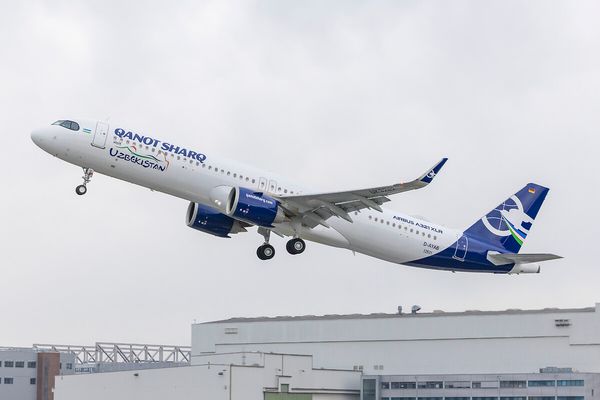As revenge travel from COVID-19 continues, 2024 is predicted to be another record-breaking travel year globally. Consequently, flights during peak seasons such as spring break and other holidays become more expensive. Despite climbing ticket prices during these times, trying to find relatively affordable flights is still possible. Research is key; the more you do, the more likely you are to save money on airfares.

Be Flexible
Maintaining flexibility in your travel plans is the most important way to try and score more affordable flight tickets during peak season. Instead of booking flights towards the end of the week or during the weekend, consider booking tickets mid-week, such as on a Tuesday or Wednesday.
Usually, leisure travelers fly out on the weekends rather than in the middle of the week, unlike business travelers, who drive up weekend prices, especially during peak travel times. Additionally, early morning or late evening flights have better odds of being less expensive, as they are less popular for leisure travelers.
Plan Ahead
While it seems obvious that planning ahead tends to save money on plane tickets, many people still book their trips fairly last minute during peak season, which costs them hundreds or even thousands of dollars. If you are confident about your travel plans, book your tickets immediately. The farther in advance you book, the more likely you are to save money.

The law of supply and demand dictates how cheap or expensive your airfare will be. Since the plane is more likely to have a greater supply of seats before your travel dates, your ticket will most likely be cheaper, as the airline is trying to maximize revenue by filling up as many seats as possible with the optimal price. Additionally, as the travel date gets closer, seats tend to fill up much faster, so airfare increases as fewer seats are available.
If you play around in Google Flights, you can see the law of supply and demand in action as you look at flight ticket prices for your itinerary. For example, if you wanted to book a flight between Minneapolis/St. Paul and Tokyo-Haneda directly for a week-long trip, you can see the significant price differences.
If you want to purchase a round-trip ticket in economy class during Easter, the average fare is about $3,200 per person. However, if you were to book even just three to four weeks in advance, that same fare drops to about $1,260 per person on average. Although this is just one example, the law of supply and demand still stands: the more seats available, the cheaper the airfare tends to be.

Utilize Low-Cost Carriers
Whether you are traveling domestically or internationally, a low-cost carrier option will usually be available. Flying on a low-cost carrier usually means you pay less in airfare, as typical services such as in-flight entertainment, meals, and priority boarding are not included in your ticket price, unlike major carriers. However, do still consider legacy carriers, as low-cost carriers will only sometimes be the cheapest option.
If you are flying on one of these carriers, be prepared to know that some of them may not fly to major airports. For example, Europe-based Ryanair does not fly to London-Heathrow (LHR). Instead, it will fly to a different London-based airport such as Stansted, Gatwick, or Luton since it is cheaper to fly into those airports, thus passing on those savings to your airfare. As long as you research the airline's policies, prepare your boarding documents in advance, maintain flexibility, and pack lightly, you will likely save significant money on airfare.
Skip-lagging
Skip-lagging is a way for some customers to save money on airfares. The customer can book a ticket beyond their intended final destination and just bail at the layover destination. Websites such as skiplagged.com can show you these itineraries. For example, suppose a direct flight between New York and Charlotte is more expensive than the same flight from New York to Charleston with a layover in Charlotte. In that case, a customer can book the New York to Charleston itinerary and get off the plane in Charlotte without flying the Charlotte to Charleston leg.

However, be aware that skip-lagging breaches the contract of carriage between the passenger and the airline, so there are better ideas than this if you want to avoid risks. While the act is not illegal, it is heavily frowned upon and forbidden on airlines such as Delta, United, and Southwest since they lose a lot of revenue.
If an airline catches you skip-lagging, you may get your ticket canceled or get banned from flying with that airline. Other drawbacks include not being able to check your bags if needed and having the practice work mostly with one-way itineraries. Overall, it can save plenty of money if done correctly, but it is not recommended considering the moderately high risks.
These are some major tips on saving money on your next flight, especially if you are flying during peak season. Continue to research even more ways to save money to come out ahead. The extra effort is worth saving a few hundred or even a few thousand dollars.
Making a Stopover in Dubai? Discover How to Book a Yacht and Explore the City in a New Way » EASA Mandates Airbus A320 Fuselage Inspections » Southwest and Turkish Airlines Unveil 2026 Partnership »
Comments (2)
 Saveplus UAE
I have read the blog on scoring affordable flights during peak season and found the tips incredibly helpful! The advice on being flexible with travel dates and booking in advance really stood out. It’s a great reminder to stay proactive when planning a trip. For amazing deals in the UAE, check out https://saveplus.ae/
Saveplus UAE
I have read the blog on scoring affordable flights during peak season and found the tips incredibly helpful! The advice on being flexible with travel dates and booking in advance really stood out. It’s a great reminder to stay proactive when planning a trip. For amazing deals in the UAE, check out https://saveplus.ae/
 SavePlus
Such a timely read! Holiday flight prices stress me out every year, and these hacks feel doable and smart. Thanks for showing how to plan better without overspending. I’ll be using these for sure. More saving strategies are at https://saveplus.in
SavePlus
Such a timely read! Holiday flight prices stress me out every year, and these hacks feel doable and smart. Thanks for showing how to plan better without overspending. I’ll be using these for sure. More saving strategies are at https://saveplus.in
Add Your Comment
SHARE
TAGS
INFORMATIONAL Flights Low Cost Carrier Travel Skiplagging Holidays Travel DemandRECENTLY PUBLISHED
 Should Students Have Homework? Better After-School Balance
Is homework bad for students? Explore learning benefits, stress, sleep, and smarter workload limits, so after-school time stays balanced.
STORIES
READ MORE »
Should Students Have Homework? Better After-School Balance
Is homework bad for students? Explore learning benefits, stress, sleep, and smarter workload limits, so after-school time stays balanced.
STORIES
READ MORE »
 Air Canada Rouge to Launch Boeing 737 MAX 8 Operations
Air Canada has officially confirmed a strategic shift for its leisure subsidiary, Air Canada Rouge, announcing that Boeing 737-8 (MAX 8) operations are slated to begin in late Q1 2026. The move marks the beginning of an ambitious year-long transition that will see Rouge evolve into an all-Boeing 737 operator.
ROUTES
READ MORE »
Air Canada Rouge to Launch Boeing 737 MAX 8 Operations
Air Canada has officially confirmed a strategic shift for its leisure subsidiary, Air Canada Rouge, announcing that Boeing 737-8 (MAX 8) operations are slated to begin in late Q1 2026. The move marks the beginning of an ambitious year-long transition that will see Rouge evolve into an all-Boeing 737 operator.
ROUTES
READ MORE »
 Qanot Sharq Takes Delivery of First Airbus A321XLR to Transform Central Asian Long Haul Travel
Uzbekistan’s premier private carrier, Qanot Sharq, has officially taken delivery of its first Airbus A321XLR. The delivery, which took place today at the Airbus facility in Hamburg, makes Qanot Sharq the launch operator for the ultra-long-range narrow-body in the Commonwealth of Independent States (CIS) and Central Asia.
ROUTES
READ MORE »
Qanot Sharq Takes Delivery of First Airbus A321XLR to Transform Central Asian Long Haul Travel
Uzbekistan’s premier private carrier, Qanot Sharq, has officially taken delivery of its first Airbus A321XLR. The delivery, which took place today at the Airbus facility in Hamburg, makes Qanot Sharq the launch operator for the ultra-long-range narrow-body in the Commonwealth of Independent States (CIS) and Central Asia.
ROUTES
READ MORE »


